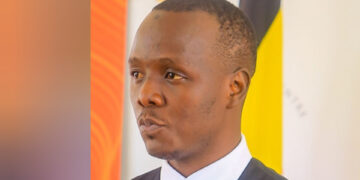OPINION
Recently, the state minister for Finance tabled the country’s FY2025/26 budget estimates to Parliament. The budget is estimated at UGX 71.9 trillion and it represents a significant increase from the previously proposed amount of UGX 57.4 trillion. The budget strategy for FY 2025/26 aims to strengthen economic growth drivers, particularly those related to the government’s ten-fold GDP expansion strategy. These include sectors like industrialization, Tourism development and other growth drivers.
However, the budget allocations for the sustainable energy programme continues to be less which does not resonate with the government’s targets of ensuring increased access to clean energy by Ugandans. For instance, the planned resources allocation for sustainable energy programme is only UGX 1.301 trillion which is insufficient and will sabotage green growth and climate change mitigation. The energy sector needs adequate funding to spur a synergized green economy and accelerate the country’s socio-economic transformation.

However, brown sectors particularly oil and gas which is a major source of environmental destruction, human rights violations and climate change related challenges is being prioritized in the FY2025/26. The oil and gas allocations for FY 2025/2026 are UGX 1.586trillion. Part of the budget allocation will facilitate the finalization of the construction of the East African Crude Oil Pipeline (EACOP) yet this project stands to cause devastating impacts on the environment since it is passing through eco-sensitive areas, and issuance of additional exploration licenses to increase production volumes of oil and gas, expediting the construction of the Oil Refinery among others.
The country now stands at a crossroads on either clinging to outdated fossil fuel investments that drain public coffers and deepen energy poverty or boldly embrace a renewable future that powers homes, creates jobs for Ugandans and safeguards ecosystems.
Notably, the parliament as the custodian of public resources and accountability has both the constitutional mandate and moral duty to prioritize clean energy in national budgets yet year after year, allocations for off-grid solar, mini-grids and other energy efficiency technologies remain pitifully low while billions flow to oil pipelines like EACOP and expensive thermal plants.
Currently, over 60% of rural Ugandans still lack electricity and many households continue to rely on toxic kerosene and charcoal to meet their energy demands. The Parliament’s oversight role under Article 90 of the 1995 Constitution and the Public Finance Management Act (2015) isn’t just ceremonial, but a tool to audit misplaced priorities, reject inequitable budgets and demand transparency. It is time legislators use this authority to demand increased funding for clean energy,
Articles 79 and 90 of the Constitution isn’t ceremonial, it’s a tool to audit misplaced priorities, reject inequitable budgets and demand transparency.
However, Uganda’s Parliament has a constitutional mandate, and a moral obligation to correct this imbalance. Under Article 90 of the 1995 Constitution and the Public Finance Management Act (2015), Parliament holds oversight powers to scrutinize, amend and approve national budgets. It is time legislators use this authority to demand increased funding for clean energy investment to ensure that Uganda achieves her target of providing energy access to over 80% of the population.
For instance, the Petroleum Fund which is fed by oil revenues, could be redirected to solar-powered irrigation for farmers or clean cooking stoves to curb deforestation, yet it’s treated as a political slush fund. Parliament must act by amending the appropriation bills to ring fence clean energy funding as well as stopping the rubber stamping of budgets and start exercising their oversight powers to deliver energy justice.
It is evident that countries such as Kenya and Rwanda are outpacing Uganda in renewable energy access because their parliaments enforce accountability. Kenya’s legislature, for instance, tied energy sector funding to verifiable solar and wind targets, achieving 90% grid renewable penetration. Uganda’s Parliament can replicate this by mandating that at least 40% of the energy budget targets off-grid solar, community mini-grids and women-led clean energy enterprises with strict quarterly progress reports.

The civil society and youth groups have been mapping energy poverty hotspots and proposing cost-effective solar plans. The parliamentarians should amplify these voices through public hearings and constituency debates.
Therefore, Parliament’s role isn’t just to react to executive proposals but to lead. The members of parliament should pass private member bills to ban fossil fuel subsidies, create a Clean Energy Transition Fund and slashing bureaucratic red tape for renewable startups. The FY2025/26 budget cycle should be a litmus test for the MPs not to side with oil cartels but to side with poor Ugandans in rural areas that need a solar lamp for their businesses. The country’s energy future shouldn’t be decided in boardrooms of multinational oil companies or World Bank offices but in Parliament where the people’s representatives can turn the tide toward light, equity, and survival.
By Patrick Edema,
The writer is an Environmental Engineer.
E-mail: epatrick60@gmail.com








































